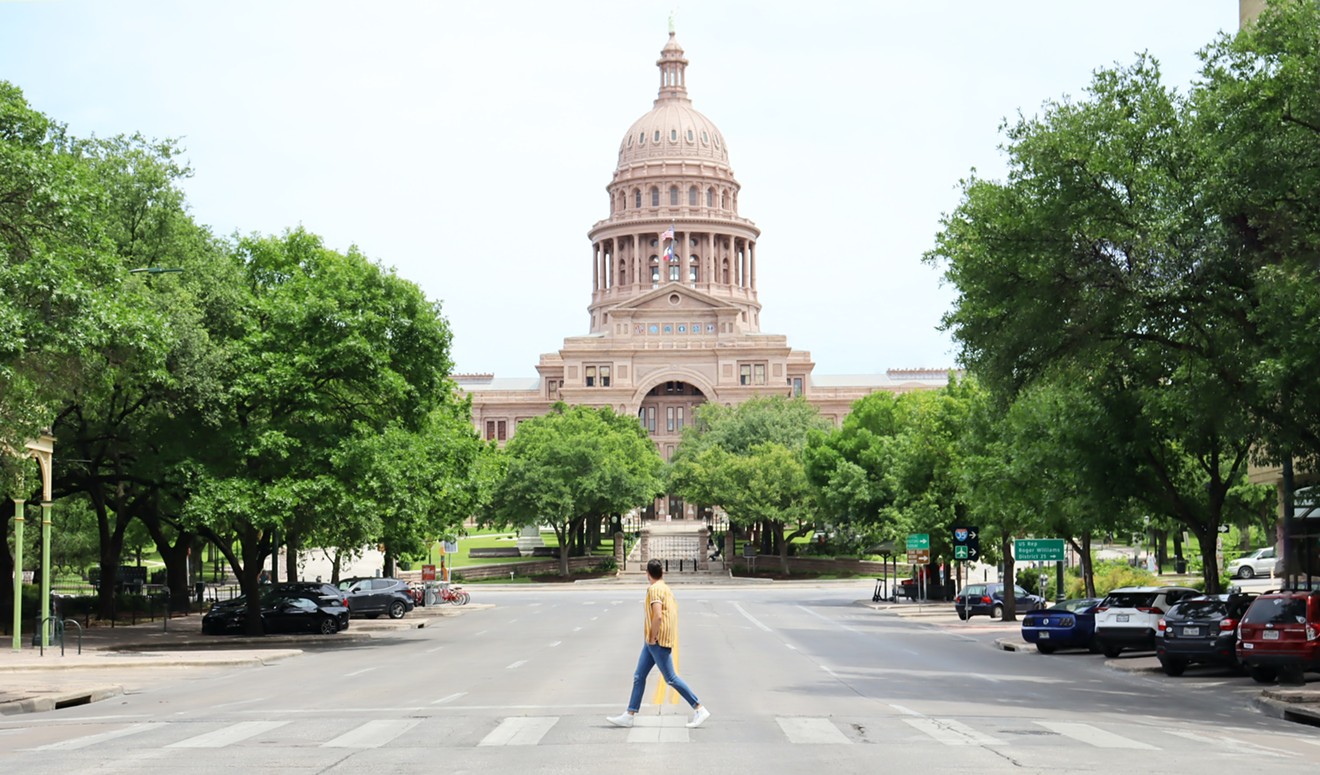Instructed to pack shorts and T-shirts, Castro and company dashed in secrecy to a Holiday Inn in Ardmore, Oklahoma. But on the following day, a hungry press swarmed the hotel where lawmakers were staying.
The entire ordeal was “overwhelming,” he said.
“I had grievously underestimated the significance of what we were about to do and the … national attention that it would garner,” Castro, now a 46-year-old congressman, recalled by phone.
Last week, dozens of Texas Democrats departed for Washington, D.C., in a similar push to prevent GOP-backed legislation from passing. They especially take issue with a bill they say would slash voting rights, particularly for Texans of color.
And while Republican lawmakers decry the move as political theater, Democrats insist that democracy is on the line.
When asked if last week’s news inspired déjà vu, Castro laughed before admitting that it feels like “an odd return to the beginning.”
“We felt that we had done something very important, that we had taken an important stand,” he said.
The 2003 quorum-break was born out of an attempt by Texas Congressman Tom DeLay and other Washington Republicans to engage in a round of re-redistricting, Castro said.
Conservative lawmakers were upset by the way Texans had voted during the 2002 congressional elections. Gerrymandering districts could tip the scales in Republicans’ favor once more.
From there, Republicans enlisted the help of then-Texas House Speaker Tom Craddick, who made re-redistricting an item during the 2003 session. Castro said that year was the first time since the 1870s that Republicans had controlled both legislative chambers and all statewide offices. They used it to their advantage.
Democrats felt they had few options to stop the state’s GOP from gerrymandering. That year, their party only held 62 seats in the House, serving alongside 88 Republicans, Castro said.
So, they bolted for a state with a Democratic governor who’d be less likely to cooperate with Texas law enforcement. At one point, state leadership had even sent Department of Public Safety troopers into Ardmore, culminating in a “bit of a standoff” between them and Oklahoma officers assigned to protect the hotel.
The newly formed Department of Homeland Security even tracked a top-ranking Democrat’s plane to Ardmore, Castro added, which is one of the ways their cover was blown.
“It was a wild time,” he said.
Since leaving the state last week, Texas Democrats have defended their trip as necessary to preserving democracy. But Republicans are accusing the politicians of wasting time and money on political games, with Gov. Greg Abbott calling the move a “PR stunt.”"I know that they’ve done something great and meaningful." – U.S. Rep. Joaquin Castro
tweet this
Taxpayer dollars aren’t being spent on the trip, for which former Congressman Beto O’Rourke’s group Powered by People has raised over $600,000. Still, NBC News reported that it’s costing taxpayers more than $1 million to fund the monthlong Texas special session, during which legislation will remain stalled until lawmakers return.
Dallas Democratic state Rep. Jasmine Crockett started to get nervous around the time she was arriving at her gate in D.C. She’d flown on a Southwest Airlines flight ahead of her colleagues to ask Congress to pass legislation preserving voting rights, and she’d just learned that news of Democrats’ plans had broken.One week ago, the @TexasHDC broke quorum & flew to DC to protect our democracy and voting rights. Since then, @poweredxpeople has raised over $600,000 for them to keep fighting the good fight.
— Powered By People Ambassadors (@PxPAmbassadors) July 19, 2021
If you can, please consider making a donation: https://t.co/r5DSkvRBcH pic.twitter.com/WibzcZ5FQW
Crockett feared that some of her colleagues may change their minds about their trip if they read misleading narratives in the news. Soon, the governor was even threatening to have them all arrested. But the Dallas legislator knew the need to block what Democrats view as anti-voting legislation was far too urgent.
Now in Washington, Crockett is prepared to stay for however long it takes. The voter suppression bill, which disproportionately targets voters of color, must die a “slow and painful death,” she said.
“I am definitely believing that no matter what happens, history will remember the 87th first special session as one where the Democrats were on the right side of history,” she said.
At the time of the 2003 trip, Castro said lawmakers wanted to shame the GOP out of taking “egregious action.” They hoped to raise the consciousness of the nation to the issue of voter suppression and "the evils of gerrymandering." Yet with Republicans controlling both chambers of Congress and the White House, the chances were slim.
Ultimately, the 2003 walkout didn’t stop Republicans from redrawing district lines to their political advantage. This time around, though, Democrats control Congress and the White House, meaning state lawmakers could potentially hold more sway.
Still, Castro said Congress will need to waive the filibuster, which Republicans themselves have done to usher in certain Supreme Court justices. It’s the best shot Democrats have at safeguarding voting rights, they say.
“Obviously, I can’t tell you how the story ends here. We’re still very much in the middle of a book,” Castro said. “But I know that they’ve done something great and meaningful and, hopefully, ultimately impactful.”













